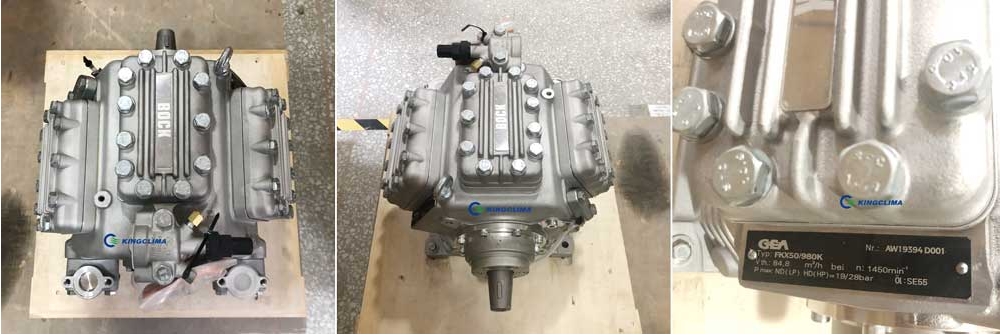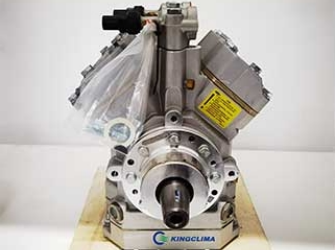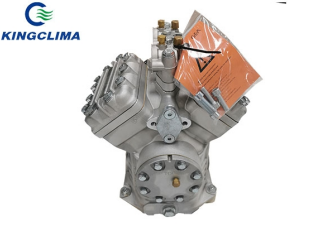Categories
Recent Posts
Tags
How Long Should Car Air Conditioning Parts Be Replaced?
On: 2024-11-19
Posted By:
Hit :
The air conditioner parts need to change timely, because lifespan of car air conditioning parts varies depending on the component, usage, and maintenance. Below are general guidelines for replacement:
1. Compressor:
- Lifespan: 8–12 years or 100,000–150,000 miles.
- Replace if it shows signs of failure, such as noise, leaks, or reduced cooling efficiency.
2. Condenser:
- Lifespan: 5–10 years.
- Replace if it becomes clogged, corroded, or develops leaks.
3. Evaporator:
- Lifespan: 10–15 years.
- Replace if it leaks or if there is a persistent odor caused by mold.
4. Expansion Valve:
- Lifespan: As needed (no fixed lifespan).
- Replace if cooling efficiency drops or if the system shows irregular performance.
5. Refrigerant:
- Recharge every 2–3 years or as needed based on performance.
- Replace refrigerant entirely when major components are replaced to ensure proper functioning.
6. Belts and Hoses:
- Lifespan: 4–6 years.
- Replace if they show signs of wear, cracks, or leaks.
7. Filters (e.g., cabin air filter):
- Replace every 12,000–15,000 miles or annually.

How to Replace Car Air Conditioning Parts
Replacing car ac parts involves specialized tools and skills. Here’s a general process:
1. Preparation:
- Turn off the engine and disconnect the battery to ensure safety.
- Evacuate the refrigerant from the system using a recovery machine.
2. Diagnose the Fault:
- Use diagnostic tools to identify faulty parts. Common signs include leaks, noise, or weak cooling.
3. Remove the Faulty Part:
- Compressor: Detach the drive belt, disconnect electrical connections, and unbolt the compressor.
- Condenser: Remove the front grille or bumper if necessary, then unbolt and disconnect the condenser.
- Evaporator: Remove the dashboard if the evaporator is housed inside, then disconnect the lines and unbolt it.
- Expansion Valve: Detach refrigerant lines and remove the valve.
4. Install the New Part:
- Position the new component and secure it with bolts and fittings.
- Reconnect hoses, lines, and electrical connections.
5. Reassemble and Recharge:
- Reassemble all removed parts (e.g., dashboard, grille).
- Recharge the system with the correct refrigerant and test for proper operation.
6. Test the System:
- Check for leaks and ensure the AC blows cold air.
Note: If unsure, consult a professional technician to avoid damaging the system or voiding warranties. Kingclima offer 7*24 professional help and high quality ac parts, if you need, please contact us.

Importance of Replacing Car Air Conditioning Parts
1. Ensures Optimal Performance:
- Keeps the AC system running efficiently, maintaining the desired cabin temperature.
2. Prevents System Damage:
- Worn or failing components can cause strain on other parts, leading to more extensive and costly repairs.
3. Maintains Energy Efficiency:
- A well-maintained AC system uses less power, improving fuel or energy efficiency in both conventional and electric vehicles.
4. Improves Driver Comfort and Safety:
- Ensures a comfortable cabin environment, preventing fatigue and distractions due to heat or humidity.
5. Preserves Air Quality:
- Replacing filters and other components prevents the accumulation of mold, bacteria, and allergens in the system.
6. Extends System Lifespan:
- Regular replacements reduce wear and tear on the entire AC system, prolonging its life.
7. Avoids Expensive Repairs:
- Proactive replacement of parts can prevent major breakdowns, saving money in the long run.
Conclusion:
Replacing car air conditioning parts at the right time ensures reliable performance, improves comfort, and prevents costly system failures. Regular inspections and maintenance help identify when parts need attention, ensuring a longer lifespan for the entire system.
1. Compressor:
- Lifespan: 8–12 years or 100,000–150,000 miles.
- Replace if it shows signs of failure, such as noise, leaks, or reduced cooling efficiency.
2. Condenser:
- Lifespan: 5–10 years.
- Replace if it becomes clogged, corroded, or develops leaks.
3. Evaporator:
- Lifespan: 10–15 years.
- Replace if it leaks or if there is a persistent odor caused by mold.
4. Expansion Valve:
- Lifespan: As needed (no fixed lifespan).
- Replace if cooling efficiency drops or if the system shows irregular performance.
5. Refrigerant:
- Recharge every 2–3 years or as needed based on performance.
- Replace refrigerant entirely when major components are replaced to ensure proper functioning.
6. Belts and Hoses:
- Lifespan: 4–6 years.
- Replace if they show signs of wear, cracks, or leaks.
7. Filters (e.g., cabin air filter):
- Replace every 12,000–15,000 miles or annually.

How to Replace Car Air Conditioning Parts
Replacing car ac parts involves specialized tools and skills. Here’s a general process:
1. Preparation:
- Turn off the engine and disconnect the battery to ensure safety.
- Evacuate the refrigerant from the system using a recovery machine.
2. Diagnose the Fault:
- Use diagnostic tools to identify faulty parts. Common signs include leaks, noise, or weak cooling.
3. Remove the Faulty Part:
- Compressor: Detach the drive belt, disconnect electrical connections, and unbolt the compressor.
- Condenser: Remove the front grille or bumper if necessary, then unbolt and disconnect the condenser.
- Evaporator: Remove the dashboard if the evaporator is housed inside, then disconnect the lines and unbolt it.
- Expansion Valve: Detach refrigerant lines and remove the valve.
4. Install the New Part:
- Position the new component and secure it with bolts and fittings.
- Reconnect hoses, lines, and electrical connections.
5. Reassemble and Recharge:
- Reassemble all removed parts (e.g., dashboard, grille).
- Recharge the system with the correct refrigerant and test for proper operation.
6. Test the System:
- Check for leaks and ensure the AC blows cold air.
Note: If unsure, consult a professional technician to avoid damaging the system or voiding warranties. Kingclima offer 7*24 professional help and high quality ac parts, if you need, please contact us.

Importance of Replacing Car Air Conditioning Parts
1. Ensures Optimal Performance:
- Keeps the AC system running efficiently, maintaining the desired cabin temperature.
2. Prevents System Damage:
- Worn or failing components can cause strain on other parts, leading to more extensive and costly repairs.
3. Maintains Energy Efficiency:
- A well-maintained AC system uses less power, improving fuel or energy efficiency in both conventional and electric vehicles.
4. Improves Driver Comfort and Safety:
- Ensures a comfortable cabin environment, preventing fatigue and distractions due to heat or humidity.
5. Preserves Air Quality:
- Replacing filters and other components prevents the accumulation of mold, bacteria, and allergens in the system.
6. Extends System Lifespan:
- Regular replacements reduce wear and tear on the entire AC system, prolonging its life.
7. Avoids Expensive Repairs:
- Proactive replacement of parts can prevent major breakdowns, saving money in the long run.
Conclusion:
Replacing car air conditioning parts at the right time ensures reliable performance, improves comfort, and prevents costly system failures. Regular inspections and maintenance help identify when parts need attention, ensuring a longer lifespan for the entire system.
Previous Post
Related Post
-
Nov 20, 2024The key components of a bus air conditioning system



.png)



